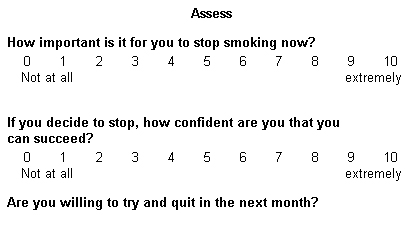NICE recommends cytisinicline for smoking cessation, expanding treatment options for clinicians in the UK
The National Institute for Health and Care Excellence (NICE) has updated its guidelines on smoking cessation, now recommending cytisinicline (also known as cytisine) as a pharmacological treatment option for adults aged 18-65 years who want to quit smoking. This addition places cytisinicline alongside other well-established interventions such as varenicline, nicotine replacement therapy (NRT), and bupropion.
A plant-derived alkaloid, cytisinicline acts as a partial agonist at the alpha-4 beta-2 nicotinic acetylcholine receptor, and has been used for decades in Eastern Europe. A growing body of evidence suggests that cytisinicline outperforms placebo and NRT and offers comparable effectiveness to varenicline in aiding smoking cessation. However, the NICE update committee acknowledged that evidence remains limited for certain population subgroups, especially those affected by health inequalities.
While the drug may increase the risk of nausea and insomnia compared to placebo or NRT, these adverse effects were generally mild. In contrast, varenicline was associated with a higher incidence of nausea. The committee noted that symptoms such as nausea and headaches may also be related to nicotine withdrawal, complicating the interpretation of adverse effect profiles.
NICE advises setting a quit date within the first 5 days of treatment. It stresses that cytisinicline, as with all types of pharmacotherapy for smoking cessation, should be prescribed within a comprehensive approach that includes behavioural support. It is not recommended for use in pregnant or breastfeeding women, nor for individuals under 18 or over 65 years.
This update offers primary care practitioners an additional, evidence-based tool to aid in smoking cessation, and provides a new option for patients seeking effective smoking cessation strategies. Healthcare professionals are encouraged to discuss the available options with patients to determine the most suitable treatment based on individual needs and preferences.
Summary
Definition
History and exam
Key diagnostic factors
- number of cigarettes per day
- time to first cigarette (TTFC)
- use of alternative tobacco and nicotine delivery products
- history of substance use disorder (SUD)
- pregnancy or breastfeeding
Other diagnostic factors
- history of depression
- history of schizophrenia
- seizure disorder
- hypertension
- unstable cardiac disease
- ventricular arrhythmia
- asthma
- chronic obstructive pulmonary disease (COPD)
- temporomandibular joint or dental disorder
Risk factors
- age <24 years
- low socioeconomic status
- history of mental illness or substance use disorder
- history of HIV/AIDS
- use of alternative tobacco and nicotine delivery products
- genetics
Diagnostic investigations
1st investigations to order
- self-report of smoking status
- Fagerström Test For Nicotine Dependence (FTND)
- Heaviness of Smoking Index (HSI)
Treatment algorithm
Contributors
Authors
Franck F. Rahaghi, MD, MHS, FCCP
Chairman
Pulmonary Department
Director
Pulmonary Education and Rehabilitation
Cleveland Clinic
Weston
FL
Disclosures
FFR is a consultant and speaker for Bayer, United Therapeutics, Janssen-PH, Merck, Boehringer Ingleheim, Takeda, and Talecris. He is involved in industry-sponsored research with Bayer, Janssen-PH, Gossamer Bio, and Bellerophon.
Samuel Gurevich, MD, FCCP
Pulmonary Department
Director
Respiratory Therapy
Cleveland Clinic
Weston
FL
Disclosures
SG declares that he has no competing interests.
Acknowledgements
Dr Franck F. Rahaghi and Dr Samuel Gurevich would like to gratefully acknowledge Dr Felix Hernandez, Dr Jose Gonzalez, and Dr Theodore W. Marcy, previous contributors to this topic.
Disclosures
FH, JG, and TWM declare that they have no competing interests.
Peer reviewers
Jaymin Morjaria, MBBS, FRCP, MD
Consultant Respiratory Physician
Guy’s and St Thomas NHS Foundation Trust
Harefield Hospital
Middlesex
Honorary Senior Lecturer
Brunel University
London
UK
Disclosures
JM has received honoraria for speaking and financial support to attend meetings/advisory boards from Wyeth, Chiesi, Pfizer, MSD, Boehringer Ingelheim, Teva, GSK/Allen & Hanburys, Napp, Almirall, AstraZeneca, Trudell, Cook Medical, Medela AG, Medtronics, and Novartis. He has been an expert witness in a court case relating to the impact of smoking on illness severity, ITU admissions, and mortality from Covid-19 in South Africa in 2020.
Arran Woodhouse, MSc
Senior Tobacco Programme Manager
North Central London Integrated Care Board
London
UK
Disclosures
AW has been reimbursed by Johnson & Johnson Ltd Nicorette UK Consulting for chairing the Smoking Cessation National Advisory Panel on 1 November 2022. He worked with NICE on the recent Tobacco Guideline (NG209) as a topic expert and as a specialist committee member for the treating dependence Quality Standards Advisory Committee (QS 207). He was appointed as an Expert Adviser for the NICE Centre for Guidelines in February 2023. Previous member of the British Thoracic Society's Tobacco Specialist Advisory Group.
Use of this content is subject to our disclaimer
